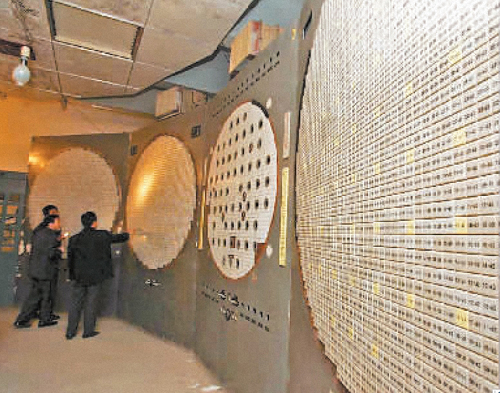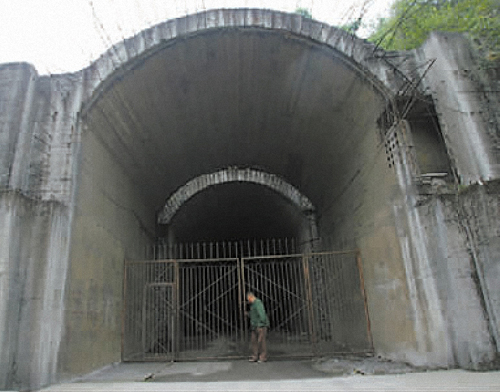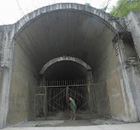Society
Former nuclear plant opening as tourist attraction
(China Daily)
Updated: 2010-04-13 07:44
 |
Large Medium Small |
BEIJING - Chinese people will soon have access to a site previously closed to the public: a discarded nuclear plant built into the world's largest artificial cave in Southwest China's Chongqing municipality.
  Top: A view of the China 816 Nuclear Military Plant from the outside. |
Part of the China 816 Nuclear Military Plant, once a highly confidential military site, will open to the public as a tourist site in October, local tourism officials said.
The plant, at the mountainous Baitao town of Fuling district, was built into the huge cave that covers 104,000 square meters.
Authorized by then-Chinese Premier Zhou Enlai, the plant was to be built into a nuclear raw material base. Its construction started in 1966, but in 1984 the Central Military Commission called off the project due to a comparatively peaceful world situation at that time.
The cave was designed to withstand thousands of tons of TNT explosives and 8-magnitude earthquakes. More than 60,000 soldiers participated in the construction of the plant and hundreds of them died during the construction, according to local media reports.
In 2002, the then-Commission of Science, Technology and Industry for National Defense agreed to declassify the 816 nuclear plant.
Li Tingyong, director of Fuling Tourism Bureau, said on Monday the 816 nuclear plant is a precious historical heritage site, which is home to many touching stories.
"To build the nuclear plant into a tourist attraction featuring national defense education is significant. During their visits there, tourists can learn real nuclear knowledge," he said.
From April 23 to 25, when a tourism trade fair will be held in Fuling, veterans who participated in the construction of the plant and some other guests will be invited to visit the plant, Li said.
Initially, the plant will be open only to domestic tour groups. However, details about future admissions will be worked out later, Li said.
Local residents are longing for visits to the tourist site, Li said, adding that many residents in Chongqing never knew that there was such a big "secret" around the cave.
"Since the cave is too big, we would open only part of the plant to the public. Then we will open more as time and conditions permit," he said.
To attract tourists from all around the country, the local government will use more media reports and cooperate with travel agencies to promote local tourism, Li said.
After visiting the nuclear plant, Dong Guanzhi, a professor with the Tourism Development Research Center at the Guangzhou-based Jinan University, said the cave is "magical, mysterious and holy".
A nuclear reactor is located in the hall, which is 80-meters high and as large as a soccer stadium. Discarded nuclear facilities and old-style computers can also still be seen, he said.
"For long, Chinese people deemed the country's military as quite mysterious. The openness of the plant will help them to know real history," said Dong, who is also a consultant for the nuclear plant tourism project.
Dong said he believes military tourist attractions, such as the 816 nuclear plant, will be well received in China in the future.
China Daily







